Dual-credit Seniors Observe Life In A Pandemic
May 21, 2020
For seniors in Chester High School’s dual-credit English class, second semester involves writing an ethnography that introduces students to field research. The final two writing assignments are a 1,000-word interview essay and a 2,200-word observation essay. Students traditionally take a day off from school to visit sites for their sub-groups where they can interview a sub-group member and observe the group in its natural habitat (often a workplace).
Coronavirus altered those plans. Just like prom, graduation, spring sports, and the last day of school, social distancing limited contacts necessary for this project, particularly those students wishing to observe medical settings such as hospitals.
An adjustment was made. For the observation essay, students were allowed to substitute their subjects and scrutinize life under the coronavirus. As a result, their research with primary sources morphed into primary source documents about life in the time of a pandemic.
Nationwide, many students lost motivation with remote learning; but all 38 of the students in the dual-credit class earned college credit from Southwestern Illinois College by completing BOTH essays. Here is a selection of coronavirus observations from the Class of 2020 (or college Class of 2024).
Amira Al-Jassim
The coronavirus pandemic has changed the lives of millions over the past few months. Thousands of people have died, and countries across the world have gone on lockdown. Normal day-to-day life has changed and will never be the same again for a very long time. Baseball games, concerts, and eating in a restaurant are far from being possible. What was once a simple activity is now completely unthinkable. This pandemic has forever changed the way we live, and the future of this virus is unclear.
For more of this story, click
Mabry Miles
Before this ethnography portfolio was even assigned, I spent my free time following around different types of nurses in Chester Memorial Hospital. My interest in the medical field led me to join the Pathfinders program offered over Christmas break. In the seven hours spent job shadowing with multiple different specializations, I decided on my future career. Most job shadowing experiences are supposed to be with the person one decides to interview for your most interesting part of your ethnography. COVID-19 had other plans for me and most of my class. Inserting my experience job shadowing during the Pathfinders Program gives a little bit more information on the broad topic of nursing and includes how things actually run in a cancer treatment facility.
For more of this story, click
Mallary Vasquez
A pandemic is not something that many would imagine happening in a progressive medicinal society, like today. However, in 2020, this is the case. In late 2019, right before the new year, strange cases of pneumonia were discovered in the Wuhan province of China. In March of 2020, schools, restaurants, and other public areas were shut down for periods of time (“Coronavirus Disease”). Students and citizens, like me, have been left in quarantine, unable to see others or resume a normal life.
For more of this story, click
Ian Reith
The coronavirus is a global pandemic that has taken the lives of many people across the globe. This pandemic is the biggest tragedy that my peers and I have been through in our young lives. The coronavirus has proven to be an absolute horrendous pandemic and is arguably bigger than some of the most historic tragedies of all time. When the coronavirus is all said and done, this will rank up there with the Great Depression and 9/11. However, some tragedies such as 9/11 have only affected the United States. This virus is affecting the whole world.
For more of this story, click
Parker Knippa
I have watched the coronavirus spread and affect a lot of people. In the beginning, I never thought it would become such a life-changing event in my life. This pandemic will be talked about for a very long time. I had little to no fear that the virus would do anything to my daily life. Overall, this virus has been a very devastating time for me and a lot of people. I have had many changes in my life due to coronavirus.
For more of this story, click
Zack Houghlan
This year was definitely a year that nobody could have ever seen coming. I don’t think the world truly understood the total impact that one virus could have on a population. When I first heard about the coronavirus was in my AP chemistry class sometime in February, but like most other people, I didn’t realize the true effect of it all until a couple of weeks into March. At first, the virus seemed like just another flu outbreak that would blow over before actually having any sort of effect on daily life. The virus spread pretty quickly through a small percentage of the population, and then almost everything that there was to look forward to for the next few months was canceled.
For more of this story, click
Lydia Heck
On a Friday in March, I, along with some fellow classmates, was attending the musical practice for our production of Shrek. Rumors were going around that a virus had entered the U.S. and was infecting more and more people by the minute. People were told that school and other buildings might shut down for a maximum of two weeks. It sounded so surreal that most people didn’t believe this was at all true. Later, the administration had contacted parents and students to alert them of the upcoming temporary shutdown. At the time, I was in the process of writing an ethnography for my Rhetoric and Composition class. My next step was to go to church the next Sunday and set up an interview with a priest so that I could gather more information about the Catholic priesthood. But, most non-essential businesses were temporarily closed, including my church. People were told not to travel. Shoppers were told to do their shopping only when necessary. There were to be no gatherings of more than ten people. People did not listen. People traveled, had gatherings, and went to stores for non-essential goods. In only a matter of two weeks, COVID-19 had made its way to Randolph County, IL. Everyone is now under quarantine. Quarantine release dates continued to get pushed back and now the world’s future isn’t to be determined for a long time. Everyone is currently living in confusion and fear.
For more of this story, click
Cierra Creason
The Coronavirus has taken over the world in a way most thought would never be possible. The Coronavirus is also referred to as COVID-19 and SARS-CoV-2, this being the scientific name for the virus. COVID-19 is the newest strain of the virus. Symptoms of COVID-19 include dry coughing, shortness of breath, fever, difficulty breathing, muscle aches, sore throat, loss of taste, loss of smell, headache, and diarrhea. The disease caused by SARS-CoV-2 is COVID-19, similar to how HIV causes AIDS. COVID-19 stands for Coronavirus Disease. 2019 was the year the virus appeared. After watching a show featured on Netflix titled Coronavirus: Explained, I learned that the virus is spread by droplets when someone breathes the air after someone has sneezed or coughed. COVID-19 can live on a surface for hours. Someone touches the surface then one’s face and becomes infected. On average, one touches one’s face about 20 times every hour. SARS-CoV-2 is the youngest of the human coronavirus family that includes HCoV-OC43, HCoV-229E, HCoV-NL63, HCoV-HKU1, MERS-CoV, SARS-CoV, and the newest addition, SARS-CoV-2. COVID-19 can be contagious without symptoms, meaning the virus can spread more easily. One can protect oneself from the newest coronavirus by social distancing and wearing a mask, especially when going to the store or another public place.
For more of this story, click
Taylor Hennrich
At the beginning of this year, I expected my senior year to go normal. I was told I would be doing this paper and I was excited about doing it, too. The beginning of the second semester came around and so did the start of this paper. My sub-group throughout this paper was Jehovah’s Witnesses. I grew up around this religion, despite not being in the religion. I completed half of my ethnography before the coronavirus hit. This virus has been around since November of 2019, but the United States did not know about it or was being affected by it. China was hit hard around the end of December and early January. The virus came to America around February, and it started affecting us all in March. Now we are all on lockdown. There is something new about this virus each day.
For more of this story, click

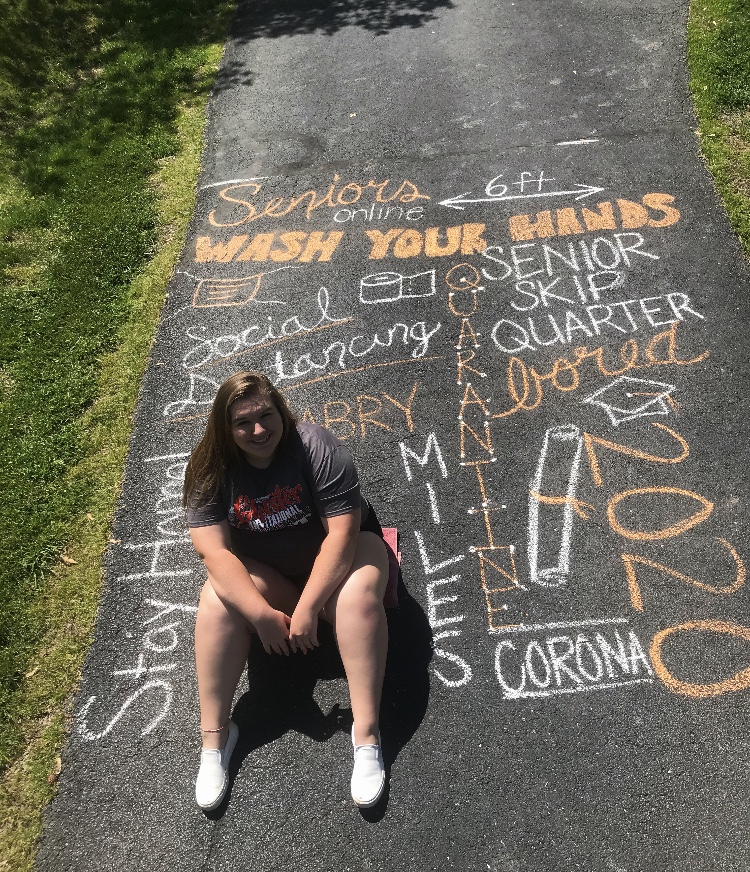
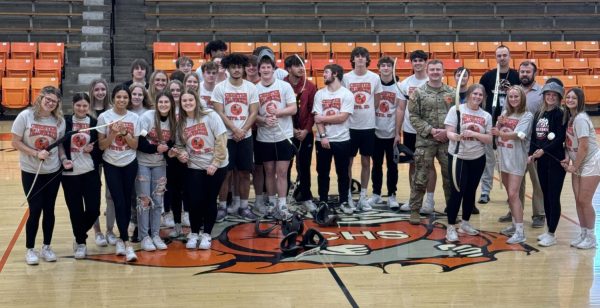

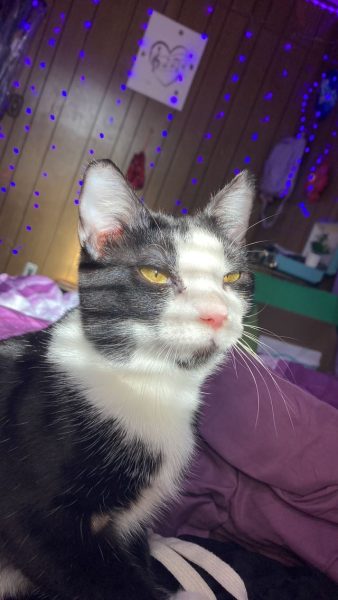
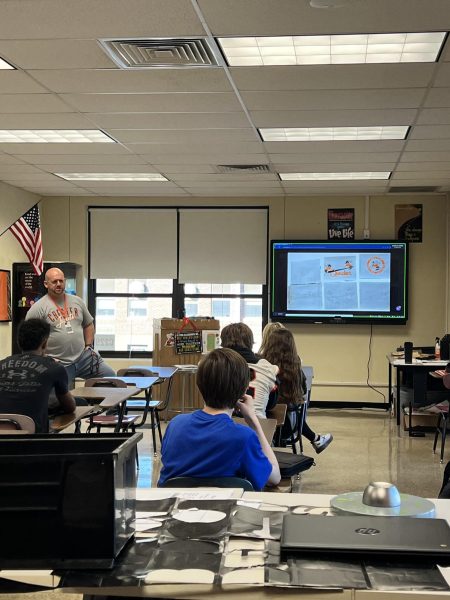
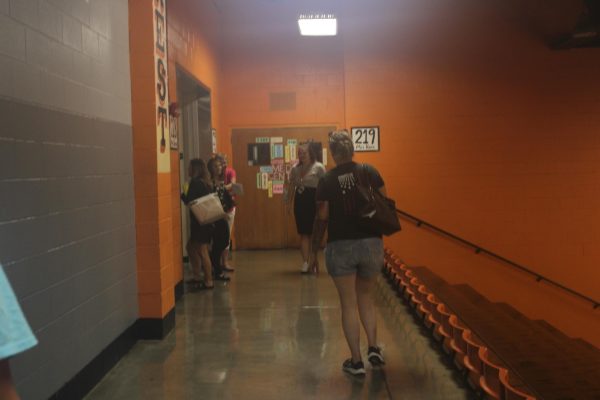
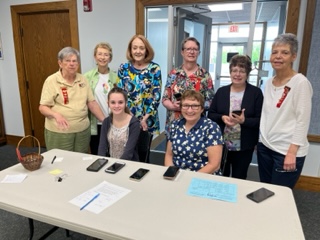
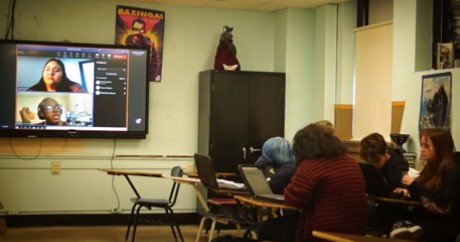

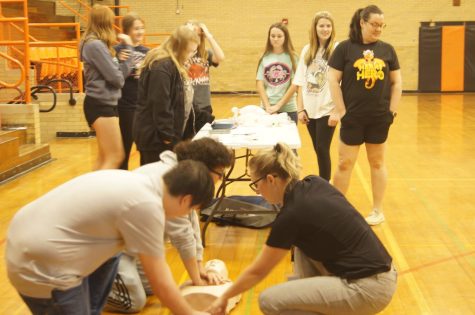

Evelyn Hankins • May 14, 2020 at 11:04 pm
All were excellent articles. It makes us appreciate the daily aspects of our lives that we took for granted since we are restricted in where we are allowed to go, who we can see socially, and what we can do on a daily basis. We all be happy when we have some degree of normalcy back in our lives.